Groundbreaking Workshop on AI and Technology-Facilitated Gender-Based Violence at AWiM24
Trending
Friday May 30, 2025
Trending
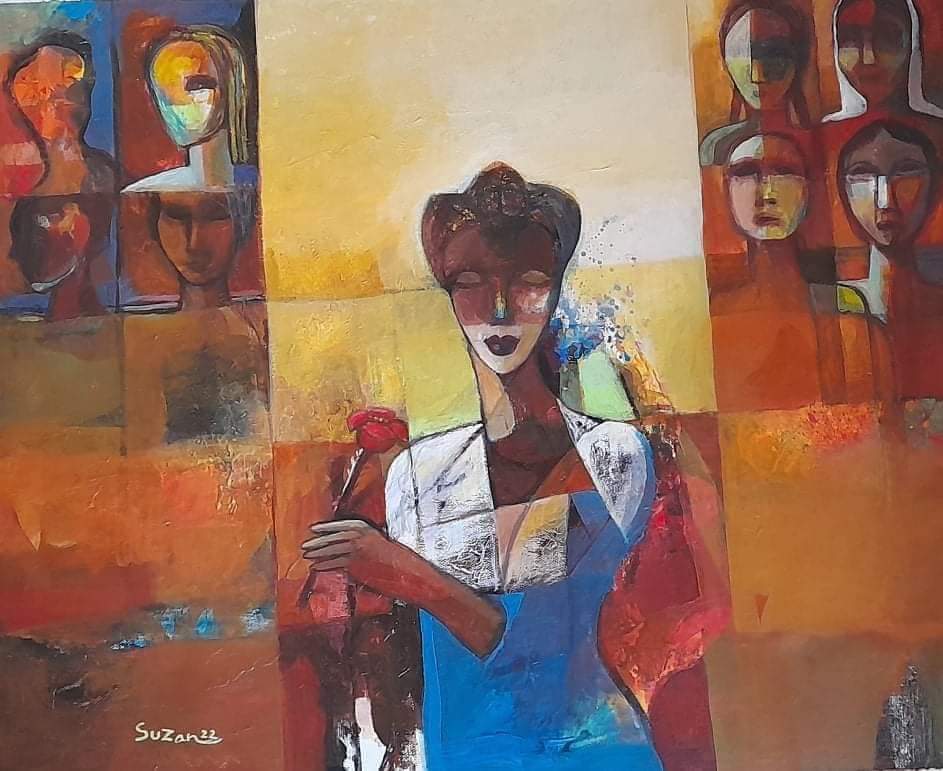
Photo Credit : Paintings by Suzan Ibrahim ( Sudanese Artist)
“I cannot forget the painful memories of sexual harassment which made me depressed and then I was diagnosed with schizophrenia”
Bushra, a 35-year-old journalist, recalls the time she was sexually harassed by some Policemen while trying to cover a story at the Omdurman Market in Khartoum, Sudan. “I was filming queues of people who wanted to get their money from the Bank of Khartoum and a police officer grabbed me and asked me why I was filming and whether I had a permit,” she says.
Bushra explained to the Police that she was unaware she needed a permit to film with a mobile camera. The police officer then pulled her hand while she was screaming and more than three other policemen joined in the attack.
She said she began to resist fiercely so that none of them would catch her. Eventually, she surrendered and agreed to go with them to the police station.
“When we arrived at the police station, the station’s director asked for my ID card. I took out my card, and one of the policemen held it and touched my breast while extending my card to the head of the station.” Bushra said she was too exhausted to speak.
The police officer asked her to sit on the chair because of how tired she looked. Bushra said she felt that there was no point in talking, and wondered why a police officer who was supposed to protect her from harassment was the one committing the crime. “The police officer asked for my mobile number, which I gave him. My last concern was to get out of the police station as quickly as possible, especially since my mobile phone was worn out and barely worked, and I did not even have enough airtime to call anyone’’, she continued. Bushra used her last airtime units to call her lawyer and told him that she was in the Souq Omdurman police station in Khartoum, Sudan. Unfortunately, the line went dead because her battery ran down.
Bushra said after the incident, she was diagnosed with schizophrenia, and she could hardly afford her medications at a time when there was a drug crisis sweeping across the Country. People in Khartoum state, Sudan, have become increasingly cut off from healthcare, due to the ongoing fight in the country. Not many medical facilities remained functional, depriving about three million people of healthcare services.
Although Sudanese society is conservative and Quran memorization schools are widespread, there is also a dark side to the Country. As a patriarchal society, women are afraid to talk about sexual harassment or even rape. They tend to suffer in silence so that they are not stigmatised by the society or killed for a sin that they have no power or strength over.
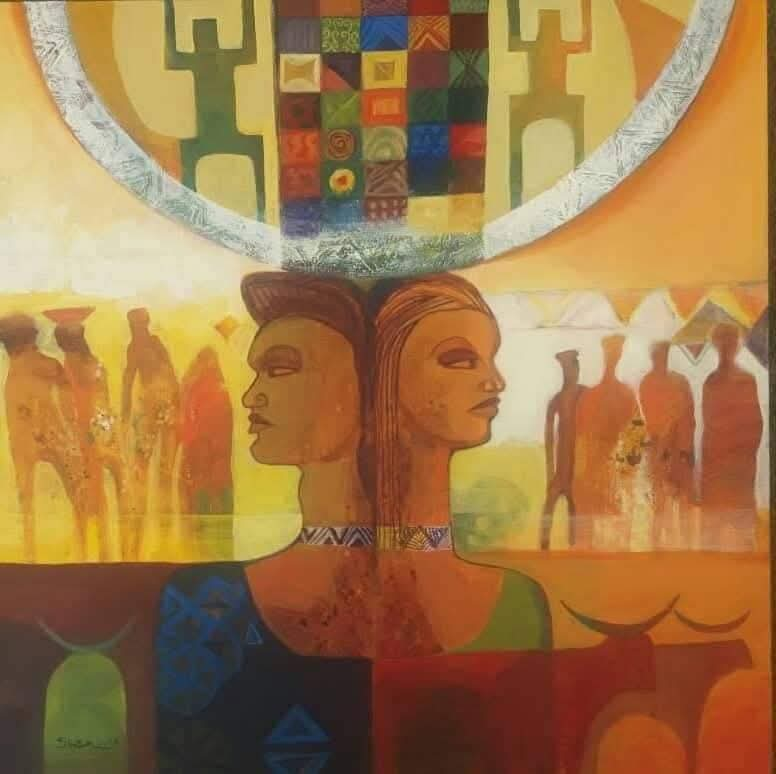
“I have been exposed to many situations in which I would scream and talk about sexual harassment, but many women looked at it with caution and skepticism’’ Bushra describes how most Sudanese women are in denial about being exposed to sexual harassment. When she started documenting her experiences and publishing them on Facebook, other women shared their own stories too but in disguise. These situations existed before the armed clashes between the Sudanese army and the Rapid Support Forces. The situation is worse in 2024 as it has become extremely difficult to identify the number of people that are often sexually abused.
The reality is that about seven million women and girls in Sudan are at risk of sexual and gender-based violence, according to Mohammed El Amin, the UNFPA representative in Sudan, who said that these crimes; including gang rape, have been repeated and their effects on individuals and society will last for many years.
The Sudanese draft constitution of 2019 guarantees equal civil, political, social, cultural, and economic rights for women and men. However, this equality is not currently feasible in the country.
In an interview with AWiMNews, Salima Ishaq, head of the Violence Against Women and Children Unit in Sudan, stated’, “There are loopholes in the Sudanese criminal law regarding its implementation and procedures. We have started drafting the first law to combat violence against women in Sudan, but because the country is in a transitional phase, we cannot enact a new law without parliamentary approval, which must be given by the Sudanese people.”
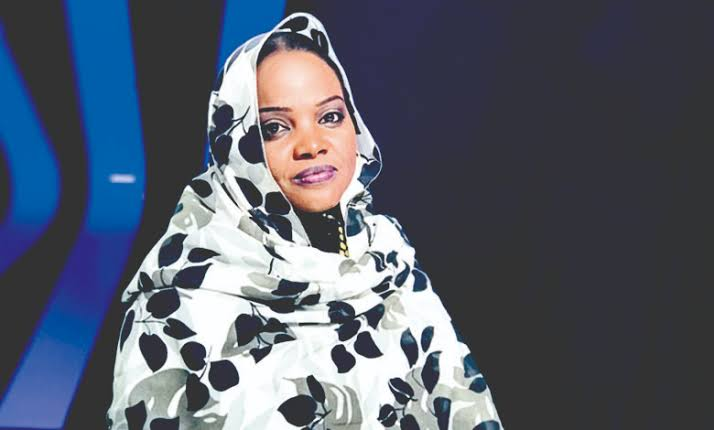
Salima Ishaq, Head of Violence Against Women and Children Unit in Sudan
According to Ishaq, no current system or mechanism effectively protects women from gender-based violence in Sudan, where violence against women is often considered a norm. While violence against women is a serious crime punishable by law, this needs to be reinforced.
She explained that the draft law aims for the state to commit to procedures that provide mechanisms for protecting women from violence. Although no new principles have been introduced in the criminal law, it incorporates new terms related to domestic violence, economic violence, and psychological violence. Protection procedures have been enacted to distinguish the criminal law further, including provisions for safe housing, a survivor support fund, and a hotline for women to report incidents based on their preferences, aimed at facilitating reporting procedures. . “Pressure is now being mounted to ensure that these mechanisms are approved. A committee from all parties with representation from all parties and agencies, even the civil department.” she noted
The head of the Violence against women unit in Sudan is hopeful that this will happen soon so that the protection measures will make the law more flexible, applicable, and implementable.
To implement the criminal law, there must be a police and prosecution office specialising in combating violence against women to oblige the state to take measures to protect Sudanese women from gender
Back to Bushra’s story. She explained that while she was at the police station, a large number of people from various Sudanese tribes were being arrested for murder, theft, and investigations.
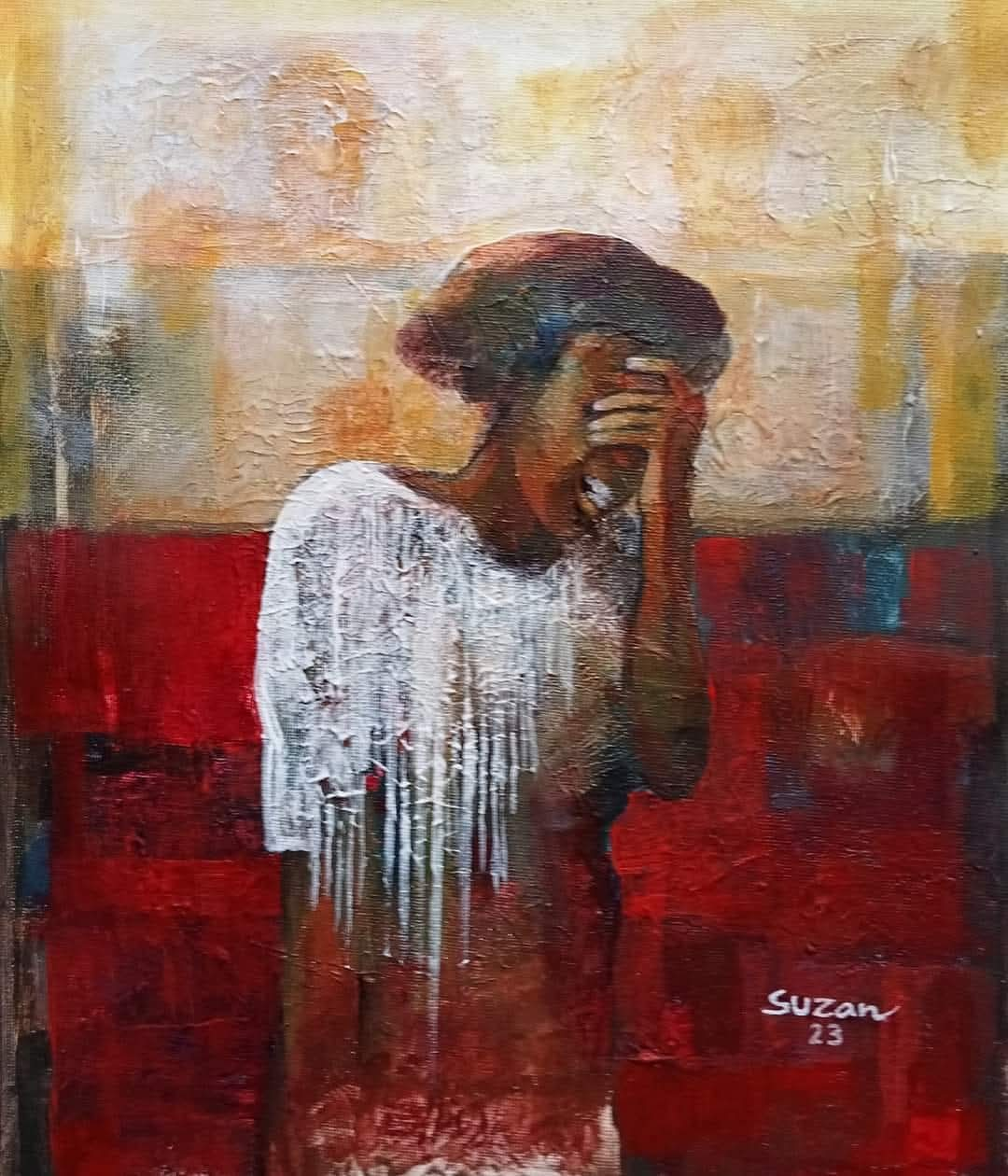
“I felt that I had to get out of the police station as quickly as possible,” she said. While waiting, she heard about a 10-year-old girl who had committed suicide by hanging herself in a room. “I was shocked. How could a girl not more than ten years old hang herself?” Bushra remarked. She wondered what could have driven such a young child to take her own life.
Suicide among children is a tragic and ongoing issue. According to the American Academy of Child and Adolescent psychiatry , It is the second leading cause of death for children, adolescents, and young adults aged 15 to 24.
Sudan faces these unique challenges, and research suggests several possible reasons for a 10-year-old child taking her own life, including trauma from conflict and violence, child abuse, bullying, neglect, poverty, economic hardship, displacement, early marriage, and child labor.
The majority of children and adolescents who attempt suicide have a significant mental health disorder, often depression. As Bushra reflected on all of this, the head of the department asked her to leave, returning her identification card, stating that the station had bigger cases to handle. “I tried to tell him that I had been harassed, but he turned his face away to continue with his other duties.” Bushra left the police station feeling sad and unwilling to see the body of the child who had committed suicide. A few weeks passed since the harassment incident, and Bushra said she was tired of sitting at home. She decided to clear her mind and went to a café in Khartoum to meet some friends. However, she realised that she didn’t have any friends left, or to be more precise, all her friends had left Sudan. She desperately needed companionship to help her cope with her situation.
The aftermath of sexual harassment can be traumatic, and survivors need support to heal from such experiences. Bushra decided to visit her uncle, Osman, who has been the oldest watch repairer in Sudan for over sixty years. Whenever she visited him, they would sit at a table on the sidewalk, chatting about the state of Sudan before he would accompany her to the nearest bus station to ensure she was safe. That day was different.
Bushra learned from the tea lady that Uncle Osman was sick and unable to come to work. She tried calling him, but his number was unreachable. After sitting in the café near his office for a while, she decided to return home. On her way home, she stood at the bus station waiting for a bus, but none were forthcoming. A motorcyclist convinced her to ride with him since there were no buses in sight.
Bushra hesitated but ultimately decided to accept the ride given the bus station’s desolation. As she hopped on the motorcycle, the man grabbed her handbag and placed it in front of himself. She realized she was in for a dangerous ride when he revealed a knife and a gun. Fearing for her safety, she thought of a plan to escape.
Suddenly, she pointed out a noise coming from the motorcycle. As soon as he stopped to check, she jumped off and ran down the empty streets.
Bashra was still terrified as she stood behind a board covered by an abandoned building.She knew she had to move to a safe place after the incident with the motorcyclist. She walked for about half an hour and then and then remembered that she knew someone who had a studio nearby. When Bashra got to the she narrated her ordeal to her friend who advised that it was too late to report the incident to the Police.. Her friend hailed a cab that took her home as it was already 8pm
Surviving rape, murder, and war twice, could be traumatic. An estimated 6.7 million people face the risk of gender-based violence in Sudan, with displaced, refugees, and migrant women and girls at higher risks. Most health centres in conflict-affected areas have been destroyed, looted, or are struggling to function due to staff displacement and the depletion of medicines and supplies. Exposure to sexual harassment during displacement is a common occurrence without a law protecting Sudanese women. They have to inevitably live with the trauma. Even if they try to confront the abuser, society holds her responsible for the harassment instead of confronting the offender.
Bashra recalls another time she was harassed inside an emergency shelter centre while She was too exhausted and sick from her trip from Omdurman to Halfa to join her family who had gone to Egypt as the circumstances of war which forced them to leave for Omdurman. Her passport expired, and she had to go to Halfa so that her brother could obtain an entry to Egypt. Bashra said she was harassed after arriving in Cairo.
‘It is an unbearable pain and hell that no one can imagine. When my voice disappears, I can hardly scream. I scream internally and I can hardly hear my own voice, what pain is this, oh God!’ She laments
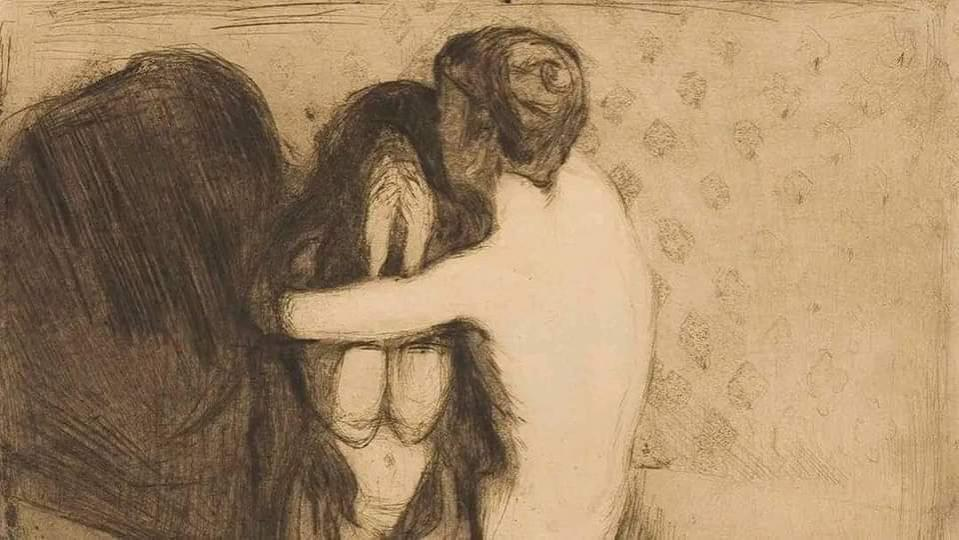
Most Sudanese women are exposed to Gender-based violence in specific circumstances.
Just like Bashra who suffered sexual harassment many times in Sudan, 35- year Aamira was raped by a member of the Rapid Support Forces while she was inside a school in one of the Northern regions. She was displaced from Khartoum due to armed clashes between the Sudanese Armed Forces and the Rapid Support Forces militias.
According to Aamira, “I joined the displaced families in a school whose doors were opened to receive the displaced after a difficult and tiring journey’’
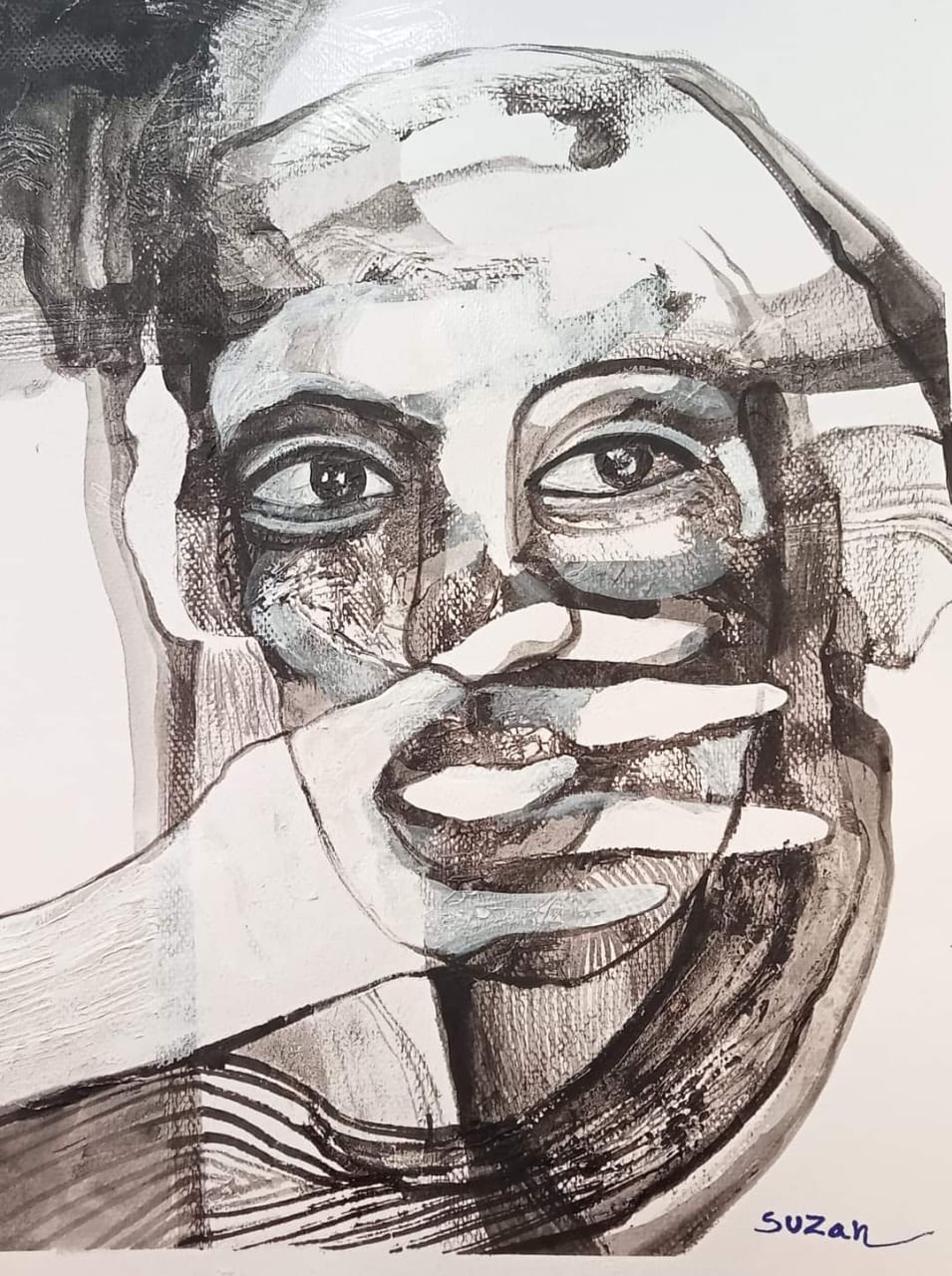
After the Rapid Support Forces took over the Madani area, the Rapid Support Forces members entered the school and asked the displaced people where the Toyota Double Cabin car that was parked inside the school had come from. Despite the displaced people’s denial of knowing who the owner of the car was, the Rapid Support Forces members insisted on obtaining the car key so that they could drive it. During the chao that ensued Aamira one of the wives of the member of Rapid Support Forces, was taken and raped in front of her husband. After that, she was released.
Eventually, Aamira was able to fight for her rights and was paid for damages after the rape incident. With the money they paid her, she travelled illegally to Egypt. She found out she was pregnant in Egypt and did not know who the father was
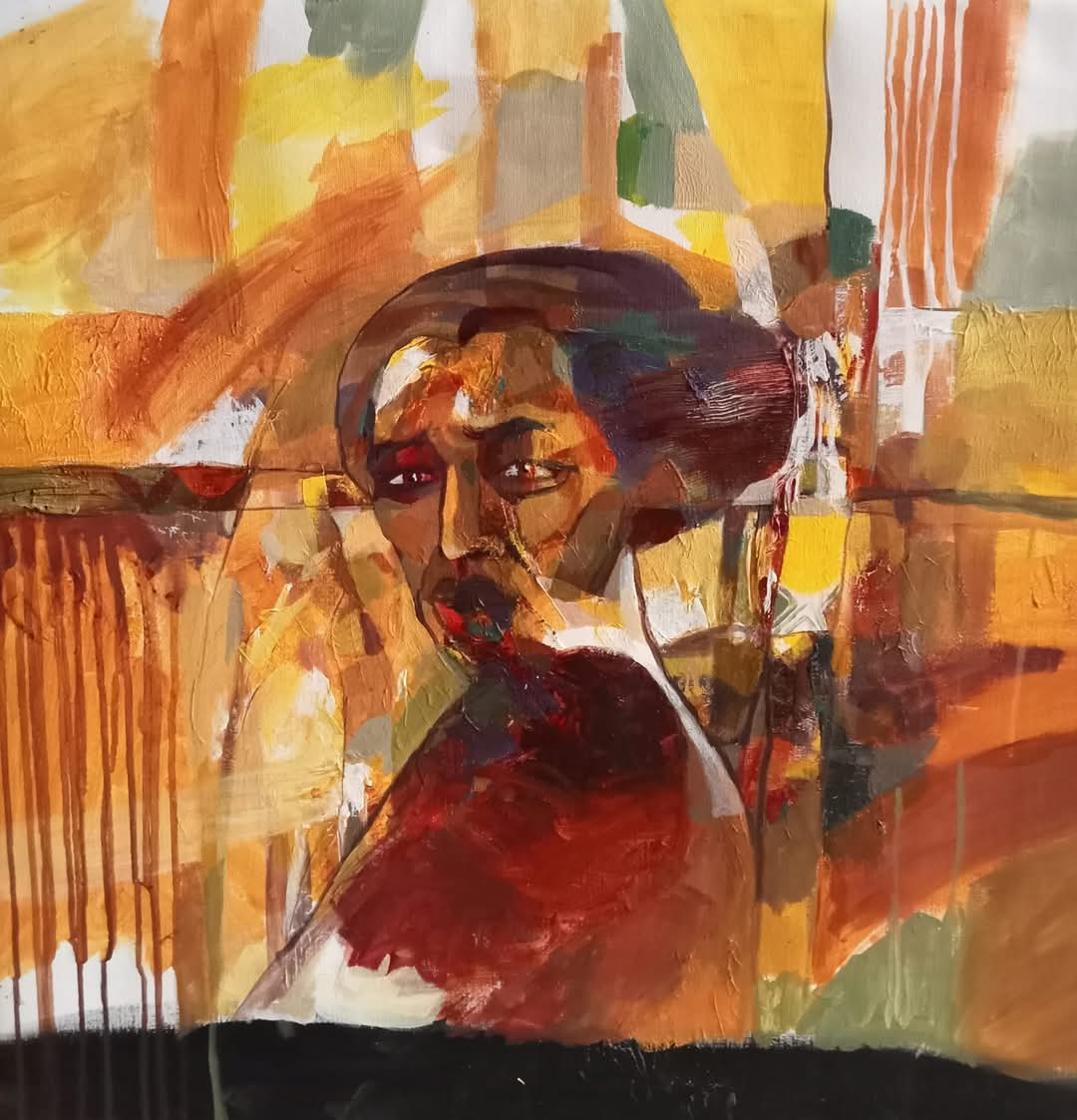
When she gave birth to her son, she suffered from psychological trauma as a result of the rape and she became more isolated and afraid to communicate with people. The relationship between her and her husband became tense, as he became more silent. Despite explaining her story to the Refugee Commission, she did not receive any psychological support at all. Until now, neither her nor her husband or children received any psychological support from any organisation. Aamira currently faces eviction threats from her landlord due to the harsh financial conditions. She is unemployed and can barely provide for the basic needs of her children. Despite all the news of aid and support from the European Union and international organisations for countries that accept Sudanese refugees, she and her family did not get any financial or psychological support.
Refugees and displaced women require support in health, education, and improvement in security and protection. The Egyptian government and other governments in the Arab nations, need to organise programs that aim to provide essential services to refugees and migrants in vulnerable situations, especially in light of the increasing demands resulting from the influx of refugees from Sudan since April 2023.
Editor’s Note: The names of the survivors have been altered in this report for their security.
“African Women in Media’s Gender Stories Editorial Fellowship, supported by Fojo Media Institute”
We’re not gonna spam. We’ll try at least.

Copyright 2020. African Women In Media
Copyright 2020. African Women In Media
Recent Comments